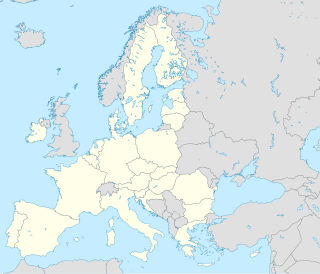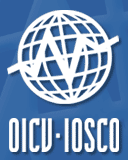
The European Commission (EC) is an institution of the European Union, responsible for proposing legislation, implementing decisions, upholding the EU treaties and managing the day-to-day business of the EU. Commissioners swear an oath at the European Court of Justice in Luxembourg City, pledging to respect the treaties and to be completely independent in carrying out their duties during their mandate. Unlike in the Council of the European Union, where members are directly and indirectly elected, and the European Parliament, where members are directly elected, the Commissioners are proposed by the Council of the European Union, on the basis of suggestions made by the national governments, and then appointed by the European Council after the approval of the European Parliament.

Financial regulation is a form of regulation or supervision, which subjects financial institutions to certain requirements, restrictions and guidelines, aiming to maintain the integrity of the financial system. This may be handled by either a government or non-government organization. Financial regulation has also influenced the structure of banking sectors by increasing the variety of financial products available. Financial regulation forms one of three legal categories which constitutes the content of financial law, the other two being market practices, case law.

Comitology in the European Union refers to a process by which EU law is modified or adjusted and takes place within "comitology committees" chaired by the European Commission. The official term for the process is committee procedure. Comitology committees are part of the EU's broader system of committees that assist in the making, adoption, and implementation of EU laws. The comitology system was reconfigured by the Lisbon Treaty which introduced the current Articles 290 and 291 TFEU. Whereas Article 291 TFEU provides for a continuation of implementation of EU law through comitology, Article 290 TFEU introduced the delegated act which is now used to amend or supplement EU legislation, whereas beforehand this was also done through comitology.
Canadian securities regulation is managed through laws and agencies established by Canada's 13 provincial and territorial governments. Each province and territory has a securities commission or equivalent authority and its own piece of provincial or territorial legislation.

The European Medicines Agency (EMA) is a European Union agency for the evaluation of medicinal products. Prior to 2004, it was known as the European Agency for the Evaluation of Medicinal Products or European Medicines Evaluation Agency (EMEA).

The Energy Community, also referred to in the past as the Energy Community of South East Europe is an international organisation established between the European Union (EU) and a number of third countries to extend the EU internal energy market to Southeast Europe and beyond. With their signatures, the Contracting Parties commit themselves to implement the relevant EU energy acquis communautaire, to develop an adequate regulatory framework and to liberalise their energy markets in line with the acquis under the Treaty.
The Markets in Financial Instruments Directive 2004/39/EC as subsequently amended is a European Union law that provides harmonised regulation for investment services across the 31 member states of the European Economic Area. The directive's main objectives are to increase competition and investor protection in investment services. As of the effective date, 1 November 2007, it replaced the Investment Services Directive (ISD).

The International Organisation of Securities Commissions (IOSCO) is an association of organisations that regulate the world’s securities and futures markets. Members are typically primary securities and/or futures regulators in a national jurisdiction or the main financial regulator from each country. Its mandate is to:
The Lamfalussy process is an approach to the development of financial service industry regulations used by the European Union. Originally developed in March 2001, the process is named after the chair of the EU advisory committee that created it, Alexandre Lamfalussy. It is composed of four "levels," each focusing on a specific stage of the implementation of legislation.
ENTSO-E, the European Network of Transmission System Operators, represents 43 electricity transmission system operators (TSOs) from 36 countries across Europe, thus extending beyond EU borders. ENTSO-E was established and given legal mandates by the EU’s Third Package for the Internal energy market in 2009, which aims at further liberalising the gas and electricity markets in the EU.

The European Insurance and Occupational Pensions Authority (EIOPA) is a European Union financial regulatory institution that replaced the Committee of European Insurance and Occupational Pensions Supervisors (CEIOPS). It is established under EU Regulation 1094/2010.
INSPIRE is "an EU initiative to establish an infrastructure for spatial information in Europe that is geared to help to make spatial or geographical information more accessible and interoperable for a wide range of purposes supporting sustainable development".
The Committee of European Banking Supervisors (CEBS) was an independent advisory group on banking supervision in the European Union (EU). Established by the European Commission in 2004 by Decision 2004/5/EC, and its charter revised on 23 January 2009, it was composed of senior representatives of bank supervisory authorities and central banks of the European Union. On 1 January 2011, this committee was succeeded by the European Banking Authority (EBA), which took over all existing and ongoing tasks and responsibilities of the Committee of European Banking Supervisors (CEBS). The European Banking Authority was established by Regulation (EC) No. 1093/2010 of the European Parliament and of the Council of 24 November 2010.
The Alternative Investment Fund Managers Directive 2011/61/EU is an EU law on the financial regulation of hedge funds, private equity, real estate funds, and other "Alternative Investment Fund Managers" (AIFMs) in the European Union. The Directive requires all covered AIFMs to obtain authorisation, and make various disclosures as a condition of operation. It followed the global financial crisis. Before, the alternative investment industry had not been regulated at EU level.

The European Securities and Markets Authority (ESMA) is a European Union financial regulatory agency and European Supervisory Authority, located in Paris.

The European Banking Authority (EBA) is a regulatory agency of the European Union headquartered in London. Its activities include conducting stress tests on European banks to increase transparency in the European financial system and identifying weaknesses in banks' capital structures. The EBA was established on 1 January 2011, upon which date it inherited all of the tasks and responsibilities of the Committee of European Banking Supervisors (CEBS). After the United Kingdom withdrawal from the European Union referendum the agency is preparing to relocate to Paris.

The Financial Stability Oversight Council (FSOC) is a United States federal government organization, established by Title I of the Dodd–Frank Wall Street Reform and Consumer Protection Act, which was signed into law by President Barack Obama on July 21, 2010. The Office of Financial Research is intended to provide support to the council.
The European Union's Third Energy Package is a legislative package for an internal gas and electricity market in the European Union. Its purpose is to further open up the gas and electricity markets in the European Union. The package was proposed by the European Commission in September 2007, and adopted by the European Parliament and the Council of the European Union in July 2009. It entered into force on 3 September 2009.












